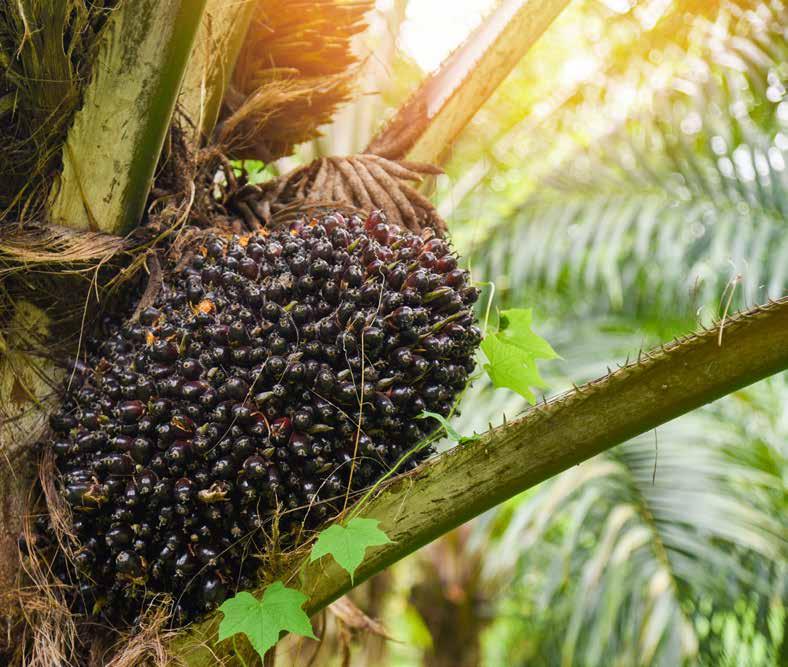
2 minute read
MPOC: ‘No Palm Oil’ Labels Are Illegal and Violate Malaysian Law
“Retail outlets that display and sell products labelled as ‘No Palm Oil’ (NPO) will face penalties if found guilty by enforcement officers of the Ministry of Domestic Trade and Cost of Living (KPDN).
“In a survey conducted by MPOC, it was found that 80 outlets in the Klang Valley region sell these products, with a concentration in high-end areas of the region.
“Letters have been sent to the eight holding companies of the 80 outlets to draw their attention and urge them to take immediate action to comply with the regulations,” it said.
“The NPO label may appear in many other claims such as ‘Palm Oil Free’, ‘Without Palm Oil’, ‘No Palm Fat’, ‘Never Palm Oil’, and others, in English or in foreign languages,” it noted. As found in the same survey, it may also appear as distinct logos, depicting orang-utans or putting a slash or a cross mark across a picture of oil palm.
MPOC chief executive officer Belvinder Sron said palm oil is the number one national commodity and “plays a significant role in our economy and it should be protected as best as possible.”
The Malaysian Palm Oil Council (MPOC) has “strongly” urged retailers “to remove all products and advertising materials displayed and sold that bear any discriminatory logos against palm oil from their premises.”
Failing to do so, they could face a hefty fine of RM250,000 or jail time not exceeding five years, MPOC said in a statement.
It said the regulations under Section 69 of the Trade Description Act 2011 prohibit any person in the course of any business or trade, or in any advertisement, to use any statement, expression, or indication that discriminates against or boycotts palm oil products. The regulations came into effect in March 2022 and after a year of grace period, its enforcement has now come into full force.
Moreover, palm oil is a versatile and widely used ingredient across various industries, including the food, oleochemicals, and biofuel sectors.
“While it is important to encourage sustainable and responsible practices within the palm oil industry, it is equally crucial to avoid creating a prejudiced narrative against this commodity as a whole.
“If all anti-palm oil efforts in the country are not addressed, palm-based products will continue to be denigrated and boycotted in the world market,” she said.
Don’t be surprised by unexpected corrosion in your palm oil production. Secure your equipment’s service life with Hardox® HiAce. This Hardox® steel grade is developed specifically for acidic and corrosive wear environments. Hardox® HiAce can extend service life by up to 3 times compared to a conventional AR400 steel.

Palm oil estates in Sabah, Malaysia’s largest producing state of the commodity, are experiencing water stress from early signs of El Nino, cutting yields and exacerbating the impact of under-fertilising and labour shortages seen over the past three years.
Malaysia, the world’s second largest palm oil producer, is expecting a weak to moderate El Nino to hit from June to November, with a forecast for lower rainfall and temperatures rising between 0.5 degrees Celsius to 1.0 degrees Celsius.

“Due to the weather concerns, we have revised our yield forecast lower and are looking at a 10%-15% decline in 2023 yields,” said Mark Adrian, a senior manager with a mid-sized plantation firm in Sabah.
Planters across Sabah said the weight of harvested palm fruit has shrunk between 10% to 30% after hot weather since February, and expect the upcoming high crop season of JulySeptember to also be affected.
“My trees are suffering. My crops are getting smaller in size, my palms are showing signs of water stress,” said Fabian Lim, an estate manager in Sabah.
“Most of my crop weight in May shrunk to 20 kg per bunch, compared to the year average of 22 kg per bunch,” Lim said.
Sabah, on Borneo island, accounts for 27% of Malaysia’s oil palm planted area. Production in Malaysia has been stagnant over the past four years despite growing demand for the world’s cheapest edible oil.










